As noted centuries ago by Cicero and subsequently Shakespeare, both fortune and love are blind, and with BIRD BOX it is that blindness which delivers the greatest love and fortune. Riveting from beginning to end, Academy Award-nominated screenwriter Eric Heisserer (“Arrival”) and Academy Award-winning director Susanne Bier (“In A Better World”) deliver a tension-building thriller that bodes not only one of the most exquisite cinematic payoffs, but one of the most powerful emotional journeys of a single character to come along in many a day.
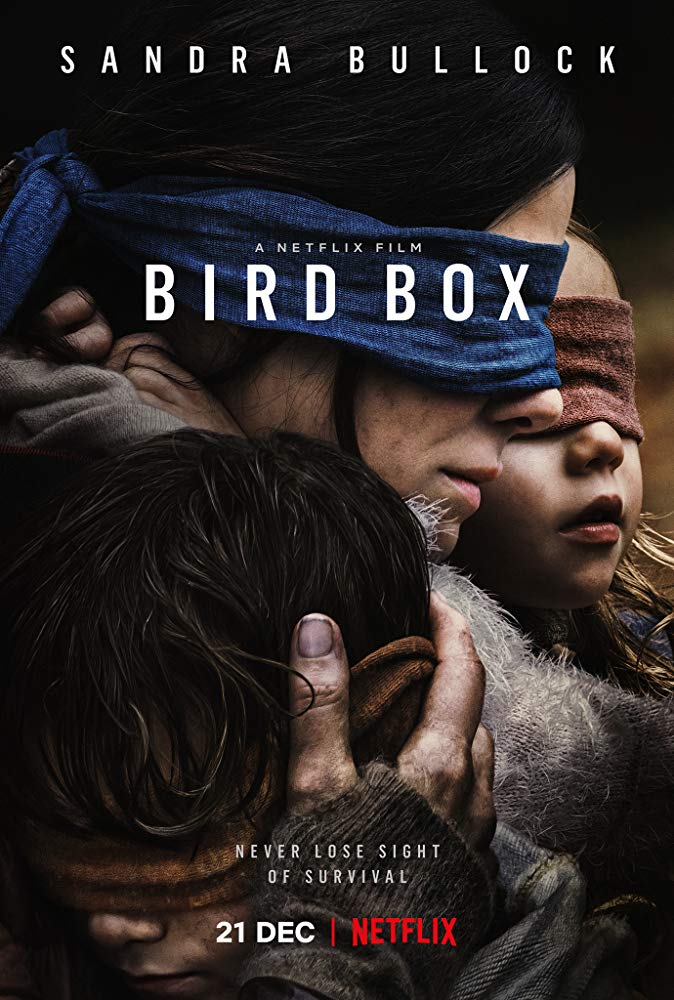
Adapted from the acclaimed 2014 novel by Josh Malerman, BIRD BOX takes flight with the very human storytelling of director Susanne Bier while elevating and immersing the experience through sound and sight, and the absence thereof, creating a dystopian world filled with a Hitchcockian uncertainty of what’s happening and an unfolding of events through interwoven storylines of past and present which is fascinating and frightening.
We first meet Malorie as she is barking instructions to two children, named “Boy” and “Girl”. Do not take off your blindfolds. Listen to everything I say. Do not make a sound. No matter what happens, do not take off your blindfolds. The situation is frightening and tense. The roar of a river fills the sonic space. Not only can you hear the conviction in Malorie’s voice and see it in the manner she grabs each child, intently staring into their eyes, but you feel it. The fear is palpable.

Cut five years earlier and meet a pregnant Malorie. An artist, she never leaves her home, not even for groceries. She has no contact withe outside world or people, let alone any emotional connections, yet her home is open to the world and nature with walls of windows. So removed from human connection, she won’t even acknowledge her pregnancy or say the word “pregnant.” She has not bonded with her unborn child, nor wants to. Her sister is her only link to the world. Malorie’s go-to persona are wisecracks and sarcasm. On this day, her sister arrives to take Malorie to a third-trimester ultrasound exam. The ultrasound goes fine, but on leaving the hospital, chaos ensues and panic sets in with everyone around Malorie.
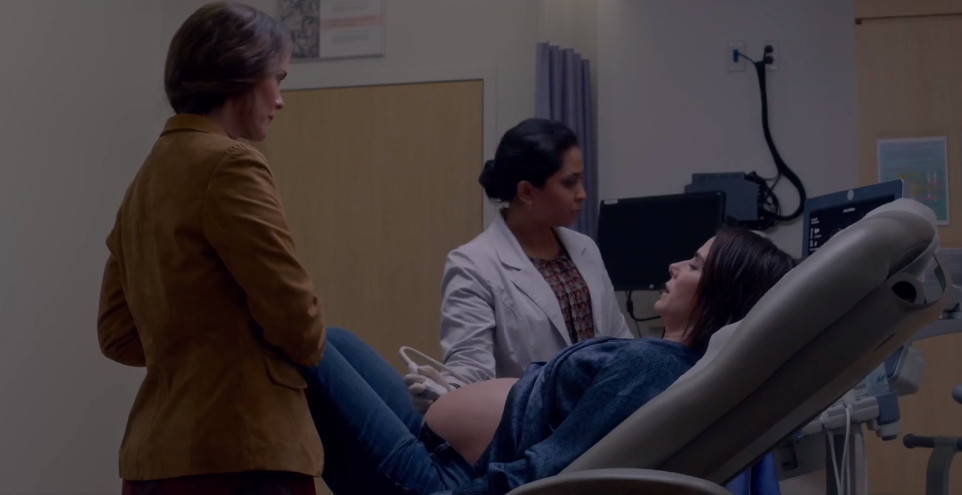
An unknown malevolent entity is infecting the world. Although “invisible” to the naked eye, when an individual looks directly at this unseen being, it causes one to see their greatest fears and commit suicide in the most violent and gruesome of fashion. Malorie’s sister succumbs to the entity while driving, thrusting Malorie not only out into the world, but into a world of chaos, death and destruction. Seeking refuge in a large corner home in a residential neighborhood, Malorie lands in an unfamiliar situation, forced to interact with others who have also taken refuge in the home.
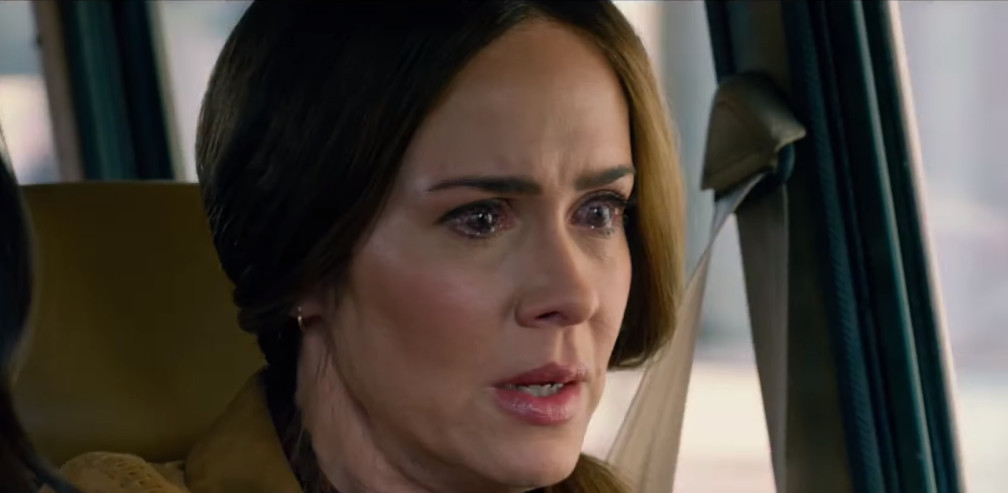
As days turns into weeks and months and eventually years, we jockey between the tension-riddled past and present until the two paths finally converge in present day and the last legs of the journey with Malorie, Boy and Girl, paddling down a river in search of safety from the entity and death.
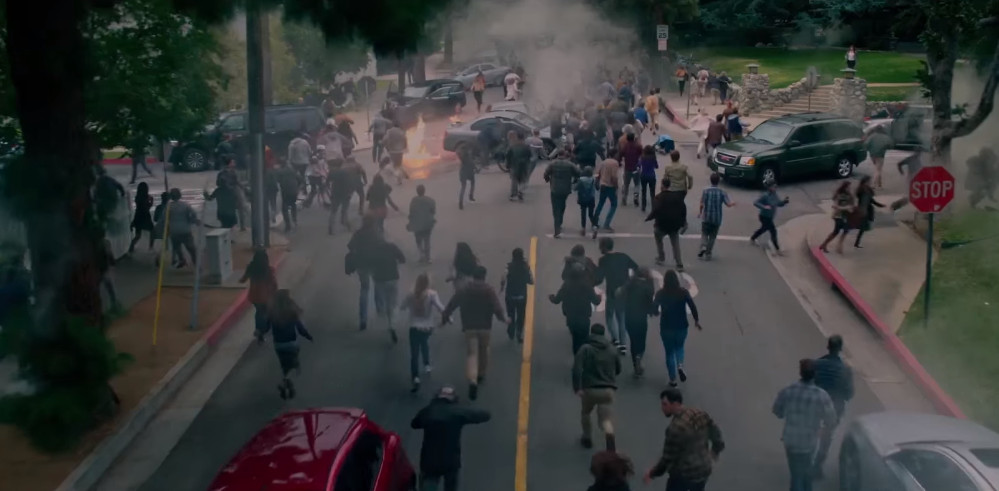
Heisserer has artfully crafted a script that speaks volumes about each character, the world in which they inhabit, and the challenges each faces individually and collectively, even when we are met with nothing more than silence. The tapestry created by the two timelines as they move towards intersection builds tension and fear, playing on the Hitchcockian ideals of the unseen or unknown being more frightening than the known. Aiding in this philosophy is Bier’s direction and the visual design as, for much of the film, our principals are blindfolded and must experience the world sight unseen, using their other senses to navigate and survive. Adding another textural and sensory level is in many instances, the camera lens is also blindfolded, forcing the viewer to walk in Malorie’s shoes and only able to see the shadows she sees through her dark-colored heavy gauzed blindfold. It’s a powerful visual tool employed by Bier and cinematographer, Salvatore Totino, as viewers are forced to “observe” through sound.
BIRD BOX excels in its character development of those trapped inside the house of first sanctuary, setting the stage for the emotional journey of our protagonist Malorie. The dynamic between John Malkovich as Douglas and Sandra Bullock as Malorie is rapier and we slowly see the presence of Malorie affect Douglas in a positive way. It’s a lovely dance between them. Moments of lightness are few and far between, but one that stands out and is key to relieving uncomfortable tension early in the film is between Douglas and Malorie and involves a shotgun.
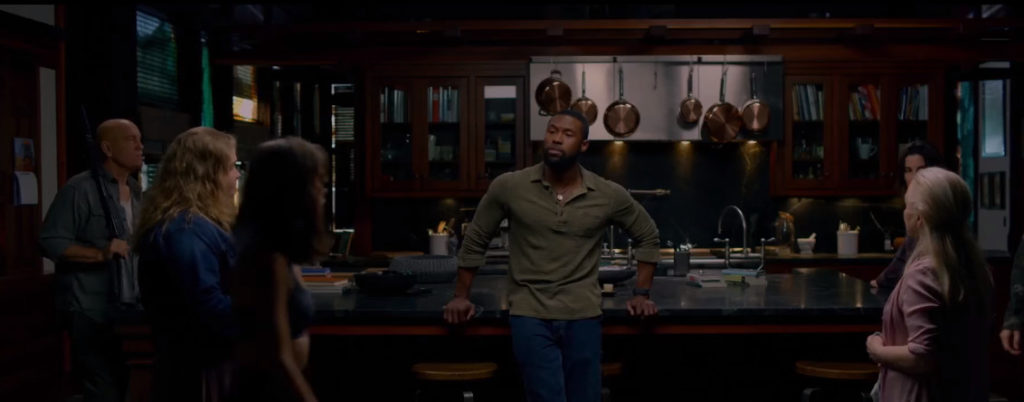
The real joy of BIRD BOX, however, comes in watching Bullock and Trevante Rhodes as Tom. Off the charts heat. They go toe-to-toe with emotion and connectivity that pulls at the heart. It’s impossible not to root for the two of them to survive and end up together with a happy life, particularly as we see Malorie’s growth and she connects on an emotional level. The stage is set in watching Tom and Malorie so as to plant the seeds of possible explanations for what we are seeing between Malorie, Boy and Girl on the river.
Speaking of Boy and Girl, kudos to Heisserer’s script and Bier’s direction at keeping the pressure cooking going as to who exactly Boy and Girl are. Are both Malorie”s? Did she give birth to twins? Is one child the product of a relationship between Malorie and Tom? Tacit hypotheses just add to the building tension.
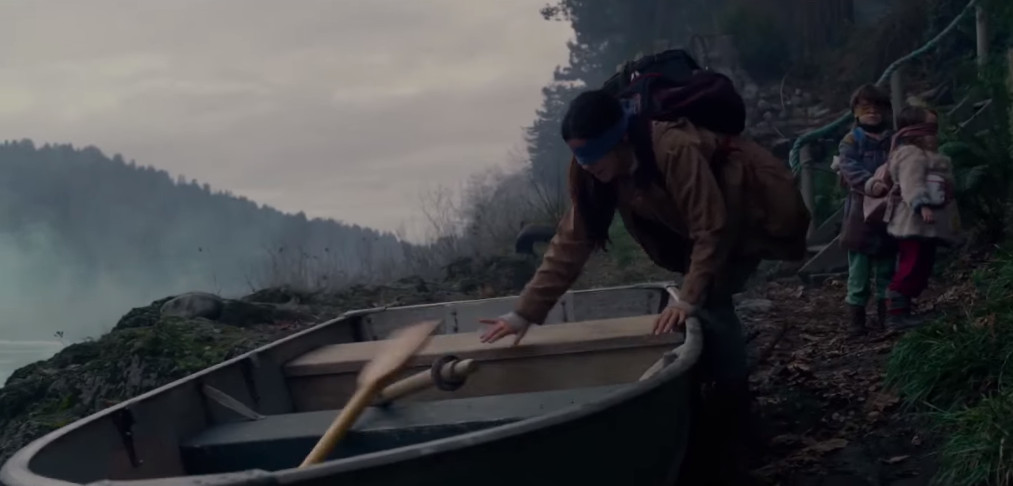
Other initial housemates include Rosa Salazar’s Lucy who initially presents as a strong character who falters and breaks once she gets involved with loose cannon Felix played by Machine Gun Kelly. As comes as no surprise, despite rather limited screen time and dialogue, Jacki Weaver delivers a solid performance as Sheryl. We see growth and the emotional stability of common sense start to take hold. Always a joy to see is BD Wong as homeowner Greg. And Tom Hollander as a late comer to survival named Gary is just killer – literally and figuratively. The nervous ambiguity Hollander’s imbues within Gary is beyond intriguing as he regales tales of psychiatric patients he witnessed forcing people’s eyes open to witness the “entity” yet he wasn’t affected by it.
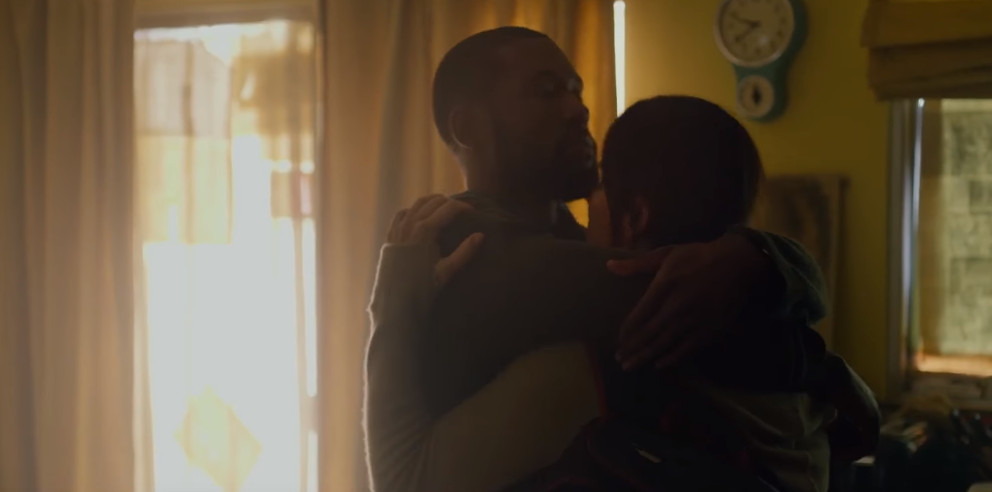
But this film boils down to the connective tissue of Sandra Bullock and Trevante Rhodes. Rhodes draws you in with strength and sensitivity while Bullock, in one of the finest performances of her career to date, takes us on a complete emotional ride as she goes from solitude and indifference to the world to a mother lion fighting for the survival of the children. She is a total powerhouse. And her physicality just emboldens the emotional gravitas of Malorie.
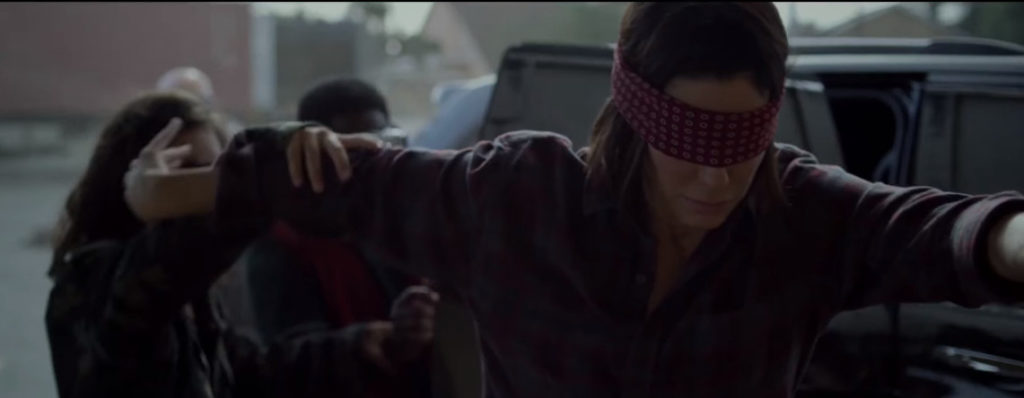
BIRD BOX would never work were it not for Ben Lester’s editing. Serious awards consideration should be given to Lester’s work here. The pacing of this film is well thought out and extremely well executed, as we start in present and then go into the past and then incrementally start moving forward to present day. We are on our toes and on the edge of our seats from beginning to end BUT we never lose our place. Quite often when going back and forth in non-linear fashion it becomes confusing for the audience. That doesn’t happen here. Bier’s direction is clear and concise and attention to details like the length of Malorie’s hair, holes in her pants, etc. keep the audience in tune with the specific time.
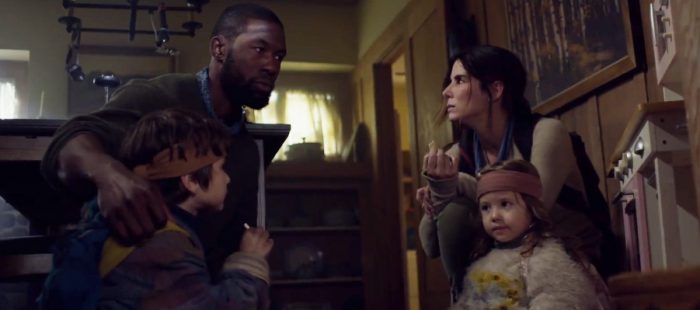
A key element of BIRD BOX is its sound design. Sound designers Ben Barker and Glenn Freemantle create an aural experience that is not only one to be savored, but one that is as much a line of dialogue or scripted emotional dance as Heisserer’s words on the page. Each sound of nature, the flutter of bird wings, the wafting of crackling fall leaves being swept up in the unseen spiral of the malevolence (punctuated with a foreboding electronic score by Trent Reznor and Atticus Ross), the snap of a branch underfoot, the tap of stones, the echo of a sound, the crunch of a tire running over a body, the piercing scream of one having met their worst fear face to face, the rush of a river or quiet of a whisper so as not to be detected, and the cacophony of silence in-between, tells just one more line, one more page of the story. Beyond award-worthy.
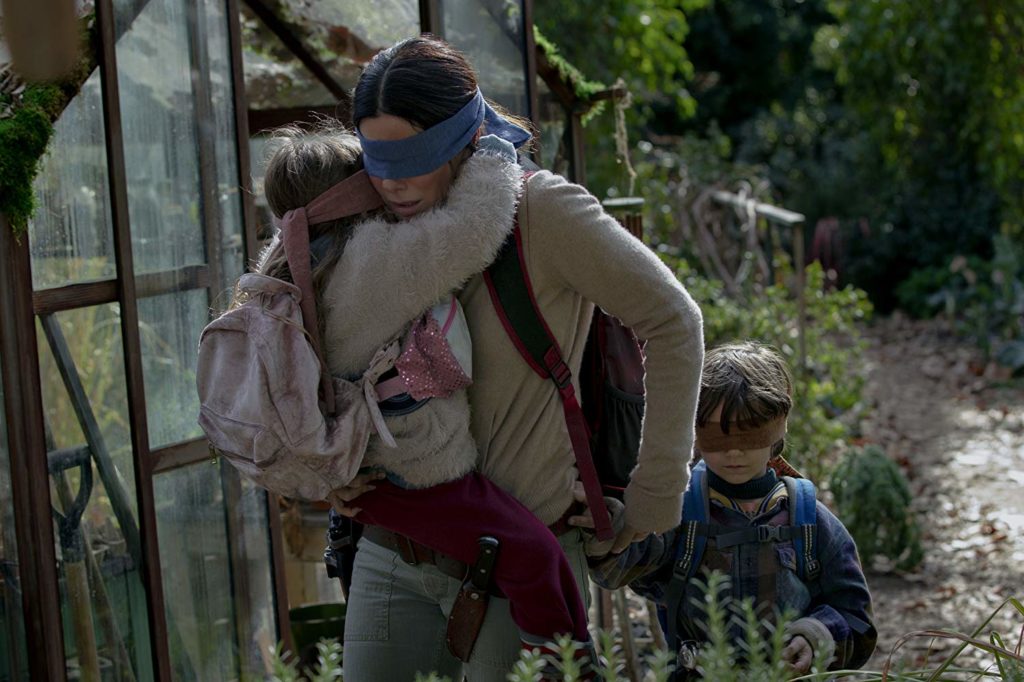
What Bier does from a directorial standpoint is outstanding. Never before has she delved into something this physically intense, but with BIRD BOX she nails the visual tonal bandwidth and perfectly marries it with story and emotion. Bier’s strongsuit is always character and emotion and that’s at the heart of BIRD BOX. But now we toss in this dystopian hell, in the forest, roaring rapids, and the visual dynamic is as tense and strong as the emotions of survival at play with Tom and Malorie, in particular.
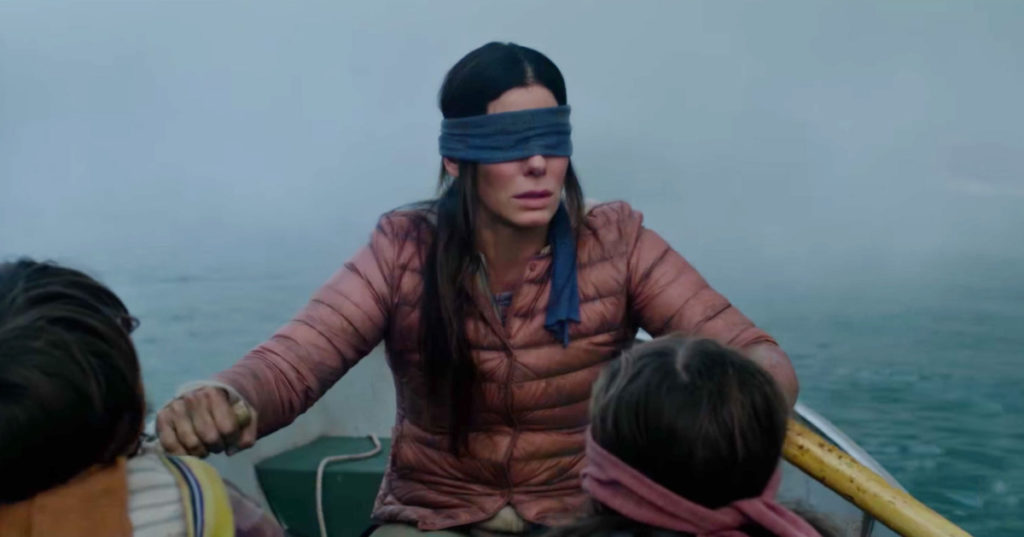
Already an admirer the work of cinematographer Salvatore Totino, here the patina of the film is perfection, celebrating and immersing everything in the greys of fog, the dark forest green of trees and pine cabins in the woods, the blackish-grey of the river. That is then bookended with the bright colorful opening of the world, only shifting with the infusion of bright red blood in the hospital hallway with the woman smashing her head against the glass and gradually growing darker as insanity, death and destruction take hold of the world. And thanks to Totino, we are also met with the beauty of the bright greens, sparkling yellow sun, blue skies peeking through a screened courtyard roof. Color abounds with florals, lighting is shifted, camera angles widen to allow us to take in the beauty of “the nest at the top of the tree that opens to a world of children playing”. Loving the camera movement and dutching that Bier and Totino use during scenes of madness, as well as the overall more intimate mid or two-shots in moments of calm.
No matter how dystopian a world, man or woman cannot deny the inherent will to survive and overcome the fear of oneself and of the unknown. Sometimes all it takes is listening to the birds and soaring above death and destruction by whatever path you find. BIRD BOX shows the way.
Directed by Susanne Bier
Written by Eric Heisserer based on Josh Malerman’s novel
Cast: Sandra Bullock, Trevante Rhodes, John Malkovich, Tom Hollander, Machine Gun Kelly, Rosa Salazar, BD Wong
by debbie elias, 12/3/2018












